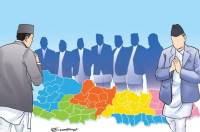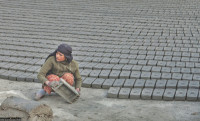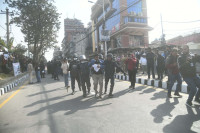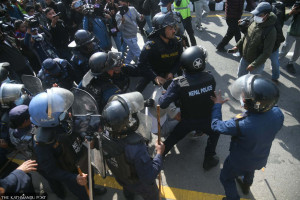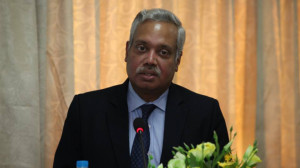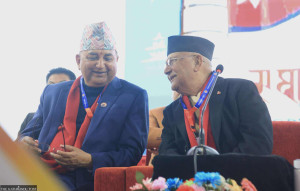National
Right to vote
Ensure accessible polling booths so that persons with disabilities are not disenfranchised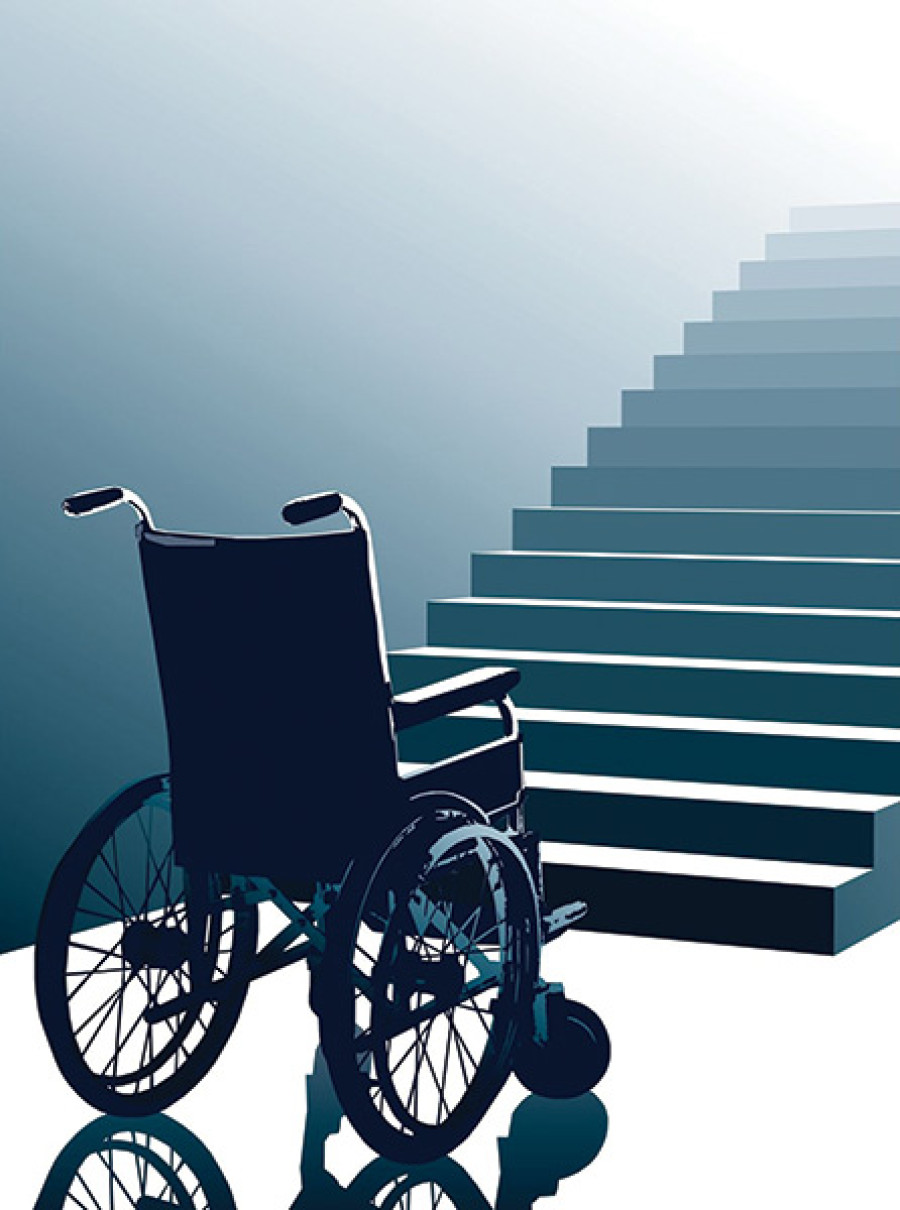
Pragya Lamsal
Nepal conducted two phases of local elections on May 14 and June 14, respectively. People from all walks of life are now eagerly awaiting a successful third phase of local elections in Province 2, scheduled to be held on September 18. The latest elections were ground-breaking because citizens who were deprived of voting for local representatives since the last local elections in 1997 have finally been able to elect their representatives.
The elections are expected not only to expedite development activities in a transparent and accountable manner, but also to ensure an inclusive society and stable politics. Further, these elections are imperative for implementing the new Constitution as the elections utilise the new local structures. In this context, elections are a crucial step toward strengthening democracy and promoting accountability.
However, the concerned agencies failed to give enough attention to the aspect of accessibility of election booths. While data regarding the problem of accessibility during elections is scarce, it is a well-known fact that polling booths, for the most part, remained inaccessible for persons with disabilities. The Election Commission had set up more than 1,500 elections booths. Sadly, the number of accessible polling booths was almost non-existent.
Advanced and developed countries ensure a number of options to help those with disabilities cast their votes. Innovations such as large print ballot papers, tactile devices, hearing loops and other inventions have made it easier for persons with disability to cast vote. But in Nepal, even ramps to polling booths were not managed in local elections, making it extremely problematic for people with disabilities. Broadly, concerned agencies failed to internalise the accessibility aspect in the elections.
The larger picture
The plight of persons with disabilities during the recent local elections provided a glimpse of the larger picture, especially in regards to the inaccessibility of our public buildings and infrastructures. Most of the polling booths were set up in public schools, colleges, community buildings or other such public spaces. None of these public buildings had ramps or other facilities for persons with disabilities. This situation reinforced the need and urgency for making our public buildings accessible to people living with disabilities. An inclusive universal design plan should be adopted when constructing or upgrading infrastructure.
Voting is power. Voting is a right. Voting is a peaceful means for people to choose their representative and the person who will be their voice in public office. It is a precondition of democracy that no citizen should be deprived of voting rights for any reason. It is worth mentioning here that, in a functioning democracy, every voter has the right to vote by secret ballot and anything that prevents the fulfilment of this right is a gross infringement.
It is clear that differently-abled voters, among others, should not be disadvantaged. And for persons with disability, accessible polling booths are one of the key preconditions to casting votes without barriers.
By not ensuring disability-inclusive polling booths, it has been proven that the matter of disability inclusion leaves much to be desired. The government should work toward ensuring basic civil rights of persons with disabilities.
Leave no one behind
The global community is heading toward achieving Sustainable Development Goals (SDGs) that envisages a world where no one is left behind. As a signatory country, Nepal has also shown commitment to the global goals and has done some commendable work towards achieving the SDGs by 2030.
Further, Nepal’s Parliament recently endorsed the Rights of Persons with Disabilities Bill. This new law is guided by a rights-based approach and the access of persons with disabilities to basic services, human rights, and opportunities including health, education and employment are expected to increase with the effective implementation of this act. The new law is an attempt domesticate the UN Convention on the Rights of Persons with Disabilities (UN CRPD), an international disability treaty that promotes, defends and reinforces the rights of persons with disabilities.
Nepal has shown its commitment in international treaties and goals and has formulated national laws in line with international treaties. Now is the time to act to ensure that no one is left behind and that the voices of persons with disabilities are heard. Now is the time to make the opinions of all citizens count in the electing of representatives. The government should make an immediate effort to increase accessibility of polling booths so that people with disabilities are not disenfranchised.
The process of reform should be started immediately. In the short term, concerned agencies should ensure that every polling booth is accessible to all, regardless of forms of impairments. In the long run, all other aspects of advanced accessibility should be taken into consideration while producing ballot papers, manifestos and other elections related activities.
The government and all concerned stakeholders must act now and take tangible steps towards ensuring that the fundamental right to a secret ballot is guaranteed for anyone regardless of forms of impairments to ensure that mainstreaming disability issues are implemented in a real sense.
Lamsal is a development professional and advocate of Sustainable Development Goals




 15.12°C Kathmandu
15.12°C Kathmandu

